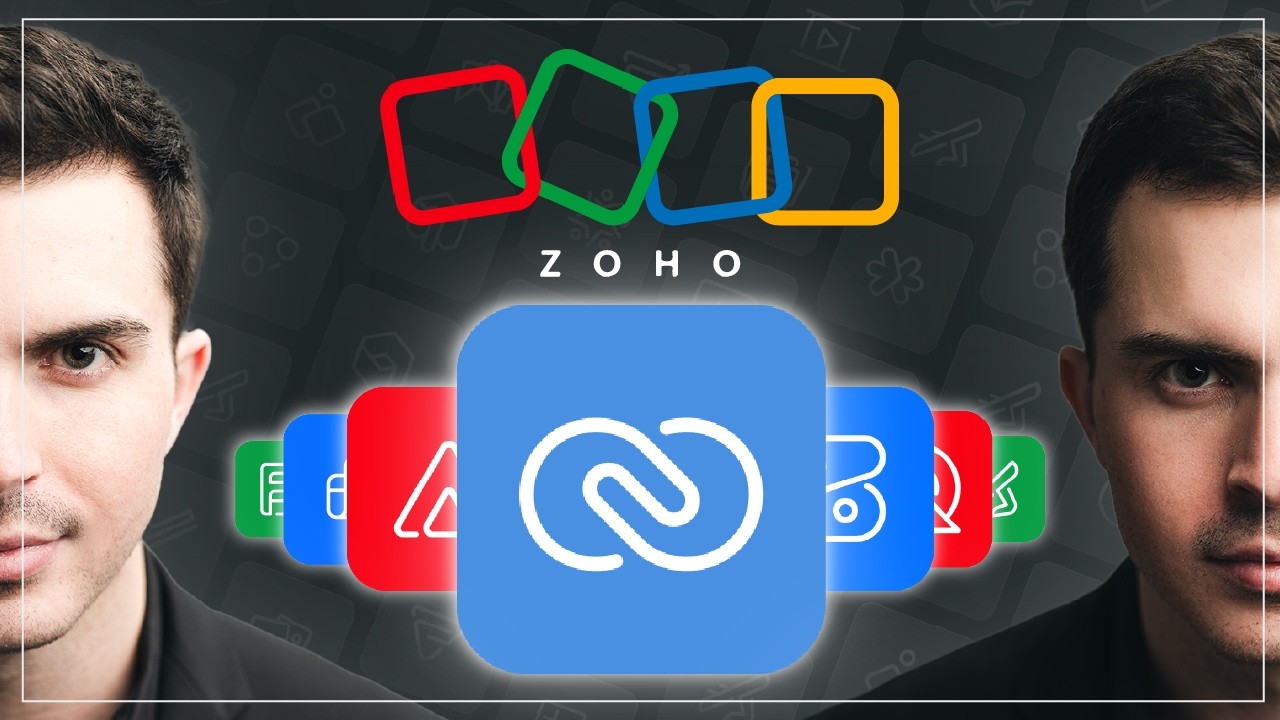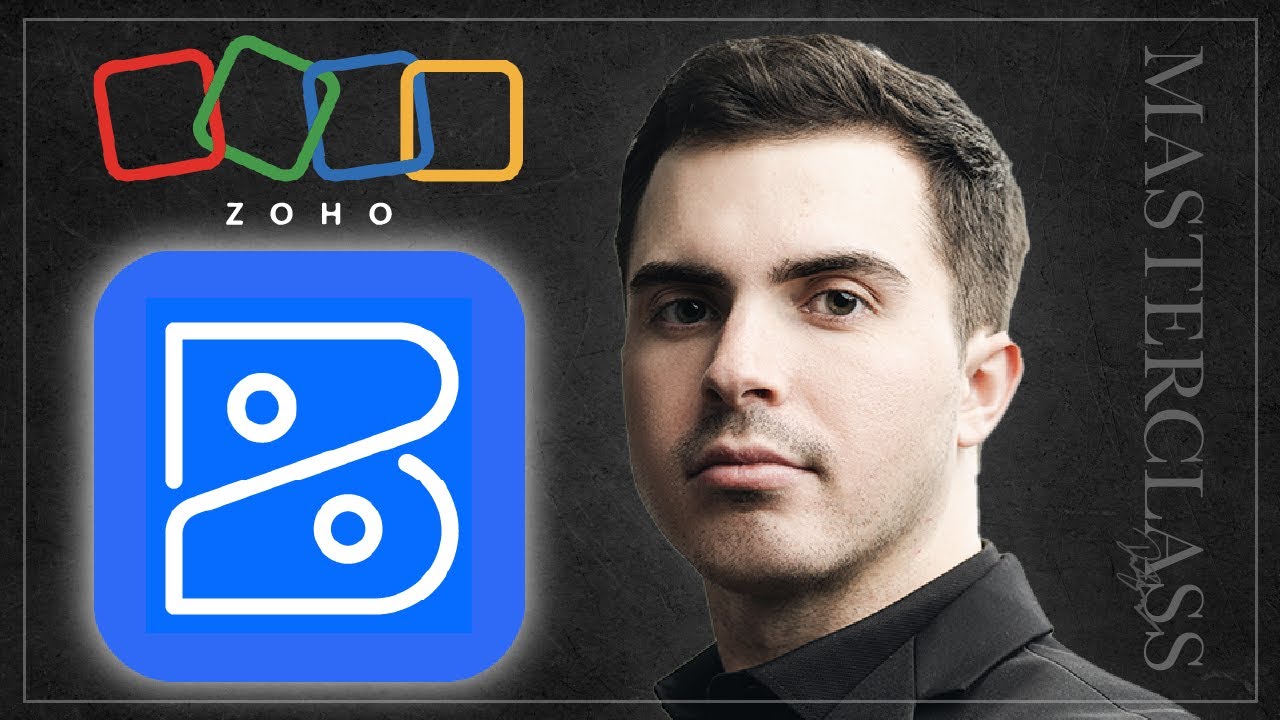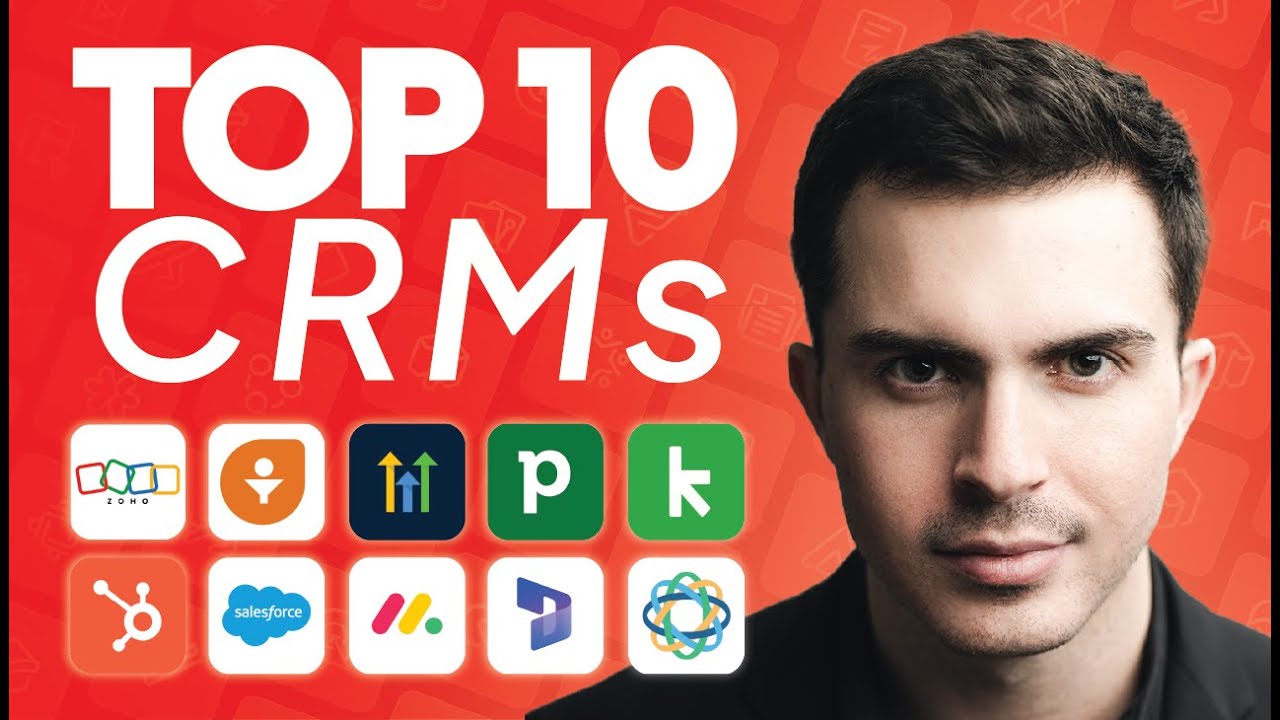
Drew Brockbank
August 20, 2025
5 mins
5 min

.png)

.png)

After implementing over 140 systems for entrepreneurs, agencies, and mid-size companies, I’ve found that many small businesses narrow down their accounting software to two choices: Wave vs Zoho.
If you’re a freelancer or a growing business that needs to keep track of finances without hiring a full-time CFO, choosing the right accounting solution matters. Cash flow visibility, time-saving automation, and accurate reporting are not options; they’re how you stay alive.
In this post, I’ll break down Wave and Zoho Books based on real-world use cases, not feature lists. We’ll talk about pricing, functionality, integrations, automation, and which platform makes more sense depending on where your business is headed.
Both Wave and Zoho Books are cloud-based accounting software platforms built for small businesses and startups. However, they represent different philosophies:
If your business is just starting and cash is tight, Wave’s features may be tempting. But if you plan to scale or want more flexibility in automating your accounting system, Zoho Books becomes hard to ignore.
Wave Accounting is recognized for its free plan, which includes income and expense tracking, unlimited invoices, and basic reporting. That makes it a go-to option for freelancers or small businesses that need to send invoices and track payments.
Wave offers:
Where Wave shines: simplicity. It’s easy to use, and most freelancers or solopreneurs can figure it out in under an hour.
But there are trade-offs. Wave’s features are limited when it comes to scalability, inventory management, integrations, and automation.
Zoho Books is part of the Zoho apps ecosystem. It’s a robust accounting software designed to integrate with your entire business, from CRM to inventory to HR.
Zoho Books offers:
Even better, Zoho Books offers a free plan for businesses under $50K in revenue, and that free plan includes bank feeds, reporting, estimates, and invoicing.
If you’re managing projects, recurring payments, payroll, or international clients, Zoho Books gives you more functionality and automation options out of the box.
If you’re brand new to bookkeeping and want a stress-free experience, Wave makes it easy. The interface is simple, which means the learning curve is short and you won’t drown in menus. That’s the magic of minimalism.
But if you outgrow the basics, you’ll hit limitations, especially around inventory management, advanced reporting, and connecting to other apps.
Zoho Books requires more setup, but it scales with your business. Once you set up automations and configure recurring workflows, the system starts saving you hours each week.
It’s ideal for:
If your business complexity is increasing, Zoho Books gives you the infrastructure to scale.
While Wave looks cheaper up front, Zoho’s pricing includes more functionality for scaling companies. That means fewer hidden costs down the line.
Both platforms offer secure, encrypted storage. But Zoho’s broader system allows for role-based access, audit trails, and custom permissions across departments. If data security and access control are critical, Zoho wins.
Wave support is limited to email unless you pay for premium services. There’s no dedicated onboarding.
Zoho Books support includes features such as live chat and phone support, available on paid plans. Additionally, we appreciate the knowledge base they offer with their paid plans. With consulting partners (like us), you can also get expert setup, including migration and team training.
Great customer support matters more as your team grows, and Zoho delivers.
Zoho offers more automation: recurring billing, payment reminders, auto-categorization of expenses, and custom workflow triggers.
With Zoho CRM or Zoho Expense, you can automate across your sales, accounting, and ops teams. Wave’s automation tools are limited and less customizable.
If you’re already using Zoho CRM or thinking about building a full-stack business system, Zoho Books is a no-brainer. It connects to:
That kind of integration eliminates manual data entry and provides a single source of truth for your entire business.
Wave doesn’t offer that depth of ecosystem. Instead, it’s more of a standalone tool.
Choose Wave if:
Choose Zoho Books if:
I’ve implemented Zoho Books for e-commerce stores, marketing agencies, and SaaS startups. Once clients switch, they rarely look back, especially when they see how much time they save automating repetitive tasks.
Need help deciding?
At Brockbank Consulting, I help teams compare platforms like Wave vs Zoho, handle migrations, and build automation to make accounting stress-free.
Book a free consultation: No pitch, just honest advice.





Book your free consultation to learn how Zoho should work for your business. We will show you the best practice ways to set it up and use it for your industry so you get the most out of Zoho.


Dive deeper into our expert articles.


